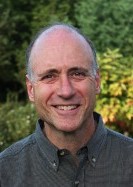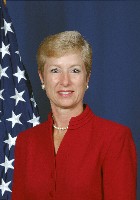Social Science Methodology Speaker Series
Stuart Soroka Lecture
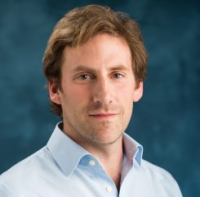
Time: 5:00pm
Place: TBA
Stuart Soroka will be hosting a talk at 5:00 PM. Soroka is a professor at the University of Michigan who focuses on political communication and the dynamic between voters and mass media. He studies both Political Science and Communications, and some of his more recent research centers on negativity in American politics (a particularly salient issue this election cycle). All are encouraged to attend. For more information, please contact Professor Settle.
John Ault Lunch Lecture
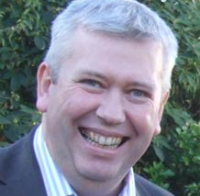
Time: 1:30pm
Place: SSRMC
John Ault will be hosting a Lunch Lecture event at 12:30 PM in the SSRMC basement. Every Presidential election cycle, Ault and a team of students travel from England to observe our elections and report on the status of them. As a former British politician and Chair of Electoral Reform Society, he should have a wealth of insight into both the election practices of Britain and America as well as commentary about what might differentiate one election cycle from another. For more information, please contact Hannah Gourdie.
Judith Baroody Event
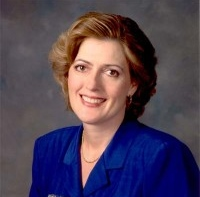
Time: 2:00-3:30pm
Place: James Blair Hall 205
Facebook Event: Link
Judith Baroody will be conducting a talk/ question and answer session at 2pm in James Blair 205. As executive director of the Association for Diplomatic Studies and Training (an online resource that archives interviews and primary documents associated with U.S. diplomatic initiatives), Baroody has great insight into diplomatic initiatives in the world, and this event should interest International Relations majors and anyone looking to become involved with Foreign Service. With that being said, the event is open to everyone, and all who are interested are encouraged to attend. For more information, please contact Professor Marcus Holmes.
A Discussion with Dr. Eric Grynaviski
Date: Friday, November 6th, 2015
Time: 2:00pm
Place: Social Science Research Methods Center
Dr. Grynaviski, a professor of Political Science and International Relations at George Washington University will be on campus to participate in discussion with SSRMC affiliated honors students this Friday, November 6th in the SSRMC at 2pm. Dr. Grynaviski is an expert in the relationship between theories developed in sociology/social theory and contemporary debates in International Relations. His research methods employ case studies and archival research. All affiliated honors students are encouraged to attend.
Visit this link for more information on Dr. Grynaviski
Studying Neuroscience, Politics, and the Law: A Conversation with Professor Francis Shen
Date: Friday, October 30. 2015
Time: 2:00-3:30pm
Place: Morton 302
What can the brain sciences teach social scientists about the study of politics and law? Come enjoy a lively discussion of that question, and others, with Professor Francis Shen, a leading expert on these topics. Professor Shen is Associate Professor of Law and the McNight Land-Grant Professor at the University of Minnesota Law School. Shen holds a J.D. and also a Ph.D. in government and social policy, both from Harvard University. In his scholarly work, he conducts empirical and interdisciplinary research at the intersection of law and the brain sciences. Among his numerous publications, he is co-author of the first law coursebook on law and neuroscience (info is here:http://www.psy.
Prof. Paul Manna to Speak on “Education Policy, Performance, and Democratic Accountability: State and Local Voting Behavior in Elections for State Education Chief”
Date: Wednesday, April 22nd, 2015
Time: 5:00pm
Place: Social Science Research Methods Center
Please join us at the SSRMC to hear Prof. Paul Manna, Associate Professor of Government at the College discuss his work “Education Policy, Performance, and Democratic Accountability: State and Local Voting Behavior in Elections for State Education Chief,” detailed in the abstract below. Food and drinks will be provided! Abstract: Chief state school officers lead state education agencies (SEAs) and are responsible for overseeing implementation of state and federal education policy. Although every state has an SEA, chiefs assume their offices through various means, including by popular elections in around a dozen states. By studying these elections from 1986 to 2010, this paper addresses the following research question: Is voting behavior in elections for state education chief, in particular voter turnout in those races, associated with the content of policy and with student outcomes? Although the literature on voter turnout shows that turnout declines in down-ballot elections, the heightened attention to schooling via expanded testing and publication of accountability report cards has provided voters with much information to judge state education performance. By considering whether turnout in chief elections is sensitive to policy and outcomes, the analysis brings evidence to the debate about whether voters are capable of holding accountable their leaders who occupy relatively low-profile elected offices.
Making a Living Making a Difference: Non-Profit, Government, Environmental, and International Careers
Date: Saturday, March 28th, 2015
Time: 10:00am-2:45pm
Place: Morton 37
March 28th 10 a.m. – 2:45 p.m., Sadler Center 3rd Floor
For more information, please visit: http://career.wm.edu/CFM/
Political Scientist Don Green Visits William and Mary
Date: Friday, February 27th, 2015
Government Department Colloquium, 12:00 p.m., Morton 37
Field Experiments Workshop, 3:30-5:00 p.m., Morton 37
“The Accidental Diplomat: 35 Years In The Foreign Service” with Ambassador Katherine Canavan
Date: Thursday, November 20th, 2014
Time: 12:30-3:00pm
Katherine Hubay Canavan (formerly Peterson) was a Foreign Service Officer with the Department of State for more than 35 years. She retired after a distinguished career in November 2011, with the rank of Career Minister, the second highest in the Foreign Service. Since retiring, she has supported a number of military exercises as a subject matter expert, particularly those which emphasize comprehensive,
non-combat approaches incorporating various U.S. Government agencies, international and non-governmental organizations.
